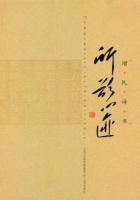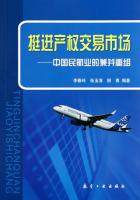In 1645, namely the second year after the downfall of the Ming Dynasty (1368-1644), the Prince of Tang Zhu Yujian, an imperial clansman of the Ming Dynasty declared himself emperor with the support of General Zheng Zhilong who had overseen the defence of Fujian and established the Longwu regime of the Southern Ming to resist the Qing Dynasty (1644-1911). In the following year, the Qing army went southward and Zheng Zhilong changed sides and pledged allegiance to the Qing Dynasty, but his 23-year-old son Zheng Chenggong (1624-1662), a young general, was unwilling to surrender. He urged his father not to surrender but to no avail. Then, he fled to Nan’ao Island to try to recruit a military force to begin again the fight against the Qing army. In the following 10-odd years, with the support of the ordinary people, Zheng Chenggong managed to establish a large-scale navy and he gradually became the main force opposing the Qing in the southeastern coastal areas. At the height of his power, Zheng Chenggong had 72 batallions of land forces and 20 of naval force, totaling some 200,000 soldiers with over 5,000 ships. His army completely controlled the sea areas south of the Yangtze River Estuary and north of Tonkin Bay.
In 1661, it was clear that the Qing Dynasty had succeeded in unifying all of China. Zheng Chenggong faced an increasingly difficult situation. He weighed up the pros and cons and again and decided to move his army to Taiwan and drive away the foreign invaders who occupied the island. He hoped to make Taiwan his base for attacking the Qing court and restoring Ming power.
Taiwan has been part of the territory of China since ancient times. In the late Ming Dynasty, Dutch explorers and adventurers had taken advantage of the weaknesses of the Ming Dynasty to forcibly occupy Taiwan. They built castles, and levied exorbitant taxes on the people of Taiwan. The people of Taiwan were in a constant state of revolt but these rebellions were suppressed by the Dutch invaders.
On April 21, 1661, Zheng Chenggong set out with his army from Jinmen with over 400 ships. Despite the stormy waters, they crossed the Taiwan Straits and arrived at the Pescadores Islands. On the Pescadores Islands, Zheng Chenggong let his troops rest for several days and then he organized a great oath-taking ceremony. All the officers and soldiers of his army swore that they would reoccupy Taiwan.
Six days later, a great banner emblazoned with the characters “Zhaotao Grand General of the Great Ming” was erected on the lead ship. Zheng Chenggong led the army onto Taiwan Island at Luermen.
The Dutch invaders fell into a great panic. They gathered their soldiers at two castles called Taiwan (in the present day Dongping area of Taiwan) and Chihkan
(present day Tainan) to confront the army of Zheng Chenggong.
Zheng Chenggong laid siege to Chihkan Castle and inflicted many defeats on the invaders. The invaders cowered in the castle and wouldn’t come out. Zheng ordered that the castle’s supply of water be cut off. Several days later, the Dutch solders surrendered.
Subsequently, Zheng Chenggong led the army to Taiwan Castle. Avoiding the invaders advantages - invulnerable castle and powerful cannon -Zheng Chenggong deployed his troops to reoccupy all other places on the Taiwan Island. Eight months later, Zheng Chenggong ordered the shelling of Utrecht Castle, an important beachhead just outside Taiwan Castle. This was the beginning of his final attack on Taiwan Castle. Losing hope of reinforcements, the Dutch invaders had no option but to raise the white flag and surrender.
On February 1, 1662, the Dutch general came to the Zheng Chenggong to officially surrender. Soon after all Dutch troops left Taiwan.
However not long after his great triumph, Zheng Chenggong died of illness.
Zheng Chenggong had retaken reoccupied Taiwan from foreign invaders, and thus he is rightly regarded as an outstanding national hero in the history of China.















